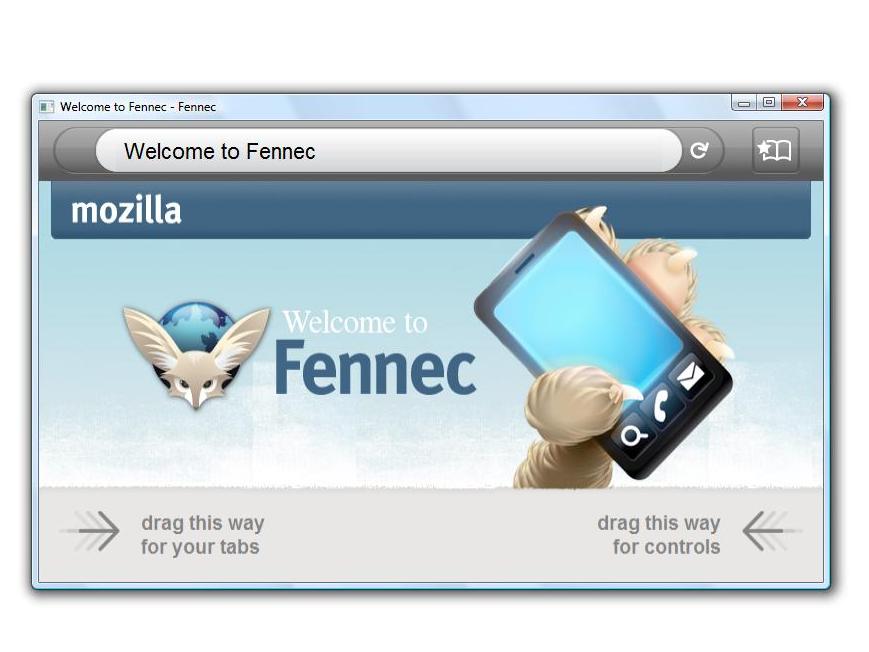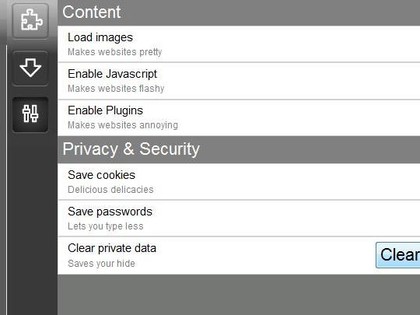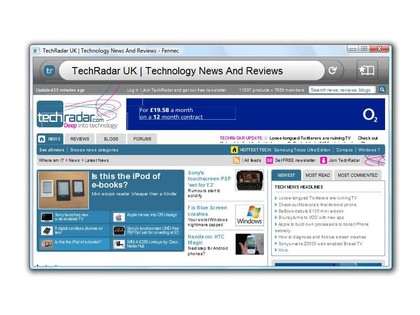Fennec is Firefox for phones - will it succeed?
Mozilla's mobile browser aims to beat Opera and IE

Fennec has finally escaped into the wild. Mozilla's mobile browser is currently in beta for Nokia Internet tablets, with a beta for Windows Mobile due later this year. It looks gorgeous, but there's more to it than a nice interface.
The big idea is to take Firefox and make it deliver on mobile devices. It's not a straight port from desktop to phone, however. It's being designed specifically with the needs of mobile users in mind, so the emphasis is on fast, easy access to the things you need.
That doesn't mean Fennec is a bare bones browser where speed is all that matters, however. It will support plugins, extensions and themes, the Awesome Bar for easy entry of URLs and browser history, and the ability to run rich Internet applications (RIAs). You'll be able to initiate calls from within the browser, access maps, use location awareness and run applications such as GMail, and the ultimate aim is to enable you to move seamlessly between desktop and mobile browsing.
If that all sounds very iPhone you'd be right, but Fennec won't be coming to the iPhone in the foreseeable future: its targets are Windows Mobile, Linux and embedded platforms such as Nokia's Internet tablets. However, while we're sure Nokia users will go for it, getting Fennec onto Windows Mobile and Mobile Linux in big numbers might not be so easy.

SETTINGS: Despite its minimal appearance, Fennec has a full complement of settings and customisations.
Gunning for Windows Mobile
On the face of it, Windows Mobile looks like an easy target. The long-awaited update to Windows Mobile's web browser upgrades it from Internet Explorer 4's innards to Internet Explorer 6 - that is, seven-year-old browsing technology that our colleagues at .net are urging Microsoft to kill off. Microsoft's interesting DeepFish browser project was junked last year, and the release of the allegedly iPhone-a-like Windows Mobile 7 is still more than a year away.
Get daily insight, inspiration and deals in your inbox
Sign up for breaking news, reviews, opinion, top tech deals, and more.
That makes Windows Mobile look very like Windows itself did when Firefox came along: a platform with a "sod it, that'll do" browser just crying out for something more useful.
However, something more useful already exists in the form of SkyFire and Opera Mobile, and we'll be amazed if the iPhone hasn't spurred Microsoft into developing a decent browser with iPhone-style features - mapping, location awareness and so on - for Windows Mobile 7.
Provided Microsoft doesn't make a complete mess of things, that means Fennec will very quickly face the "good enough" problem: if the default browser in Windows Mobile is good enough for most people, it's going to be hard to persuade significant numbers to try anything different.
It's a similar story with Linux. After a slow start Google is busily forging deals with mobile phone makers to stick Android on their systems, and that could make Android the dominant flavour of mobile Linux. For now its WebKit-based browser is okay rather than brilliant, but that's going to change: Google has already promised that it'll be bringing Chrome to the platform. Once again that would mean Fennec facing the "good enough" problem.

CLEAN: Fennec's interface is clean and smart, and the controls appear by dragging across near the side of the page. Once again, this is a demo version running on Windows.
Mozilla's plans, though, are pretty smart. The plan is to tempt would-be users by using Weave to provide a bridge between PC and phone to synchronise auto-fill information, passwords and cookie controls, and one particularly nifty idea is that when you move from your PC to your mobile, Fennec will automatically open the pages you were looking at on your desktop.
Perhaps most importantly of all, Mozilla will promote Fennec from within Firefox's installer and take advantage of its enormous developer and user community to spread the word about standards-compliant, secure browsing.
So will it work? If Fennec delivers on its promises, then it's going to be a great mobile browser - but with mobile Internet seen by many as The Next Big Thing, it's up against some stiff opposition. It's far too early to predict whether mobile Firefox can repeat desktop Firefox's success, but if nothing else it's going to give the mobile browsing world a much-needed kick up the backside.
Writer, broadcaster, musician and kitchen gadget obsessive Carrie Marshall has been writing about tech since 1998, contributing sage advice and odd opinions to all kinds of magazines and websites as well as writing more than a dozen books. Her memoir, Carrie Kills A Man, is on sale now and her next book, about pop music, is out in 2025. She is the singer in Glaswegian rock band Unquiet Mind.
